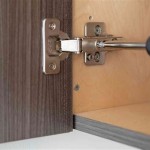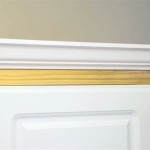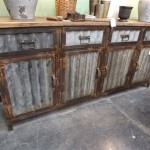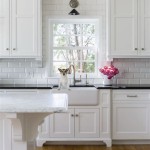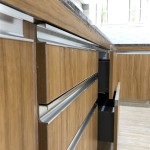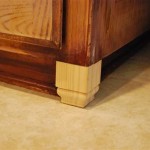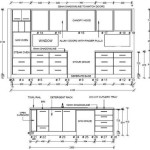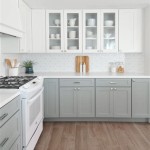Kitchen Cabinets and Countertops: Understanding the Costs
Renovating a kitchen is a significant investment, and understanding the costs associated with cabinets and countertops is crucial for effective budgeting. These two components are often the focal points of a kitchen, both aesthetically and functionally. The expense involved varies widely depending on several factors, including materials, size, complexity of design, and installation fees. This article provides a comprehensive overview of the cost considerations involved in purchasing and installing kitchen cabinets and countertops.
The financial outlay for kitchen renovations can be broken down into several categories: design, materials, labor, and unexpected costs. While cabinets and countertops often represent the largest portion of the budget, it's important to consider the interplay between these elements and other aspects of the kitchen remodel, such as plumbing and electrical work. Failing to adequately account for these interdependencies can lead to budget overruns and project delays.
Cabinet Costs: A Breakdown
The cost of kitchen cabinets is multifaceted, influenced by construction type, materials, and design complexity. There are generally three categories of cabinet construction: stock, semi-custom, and custom. Each type offers a different range of price points and quality.
Stock cabinets are pre-built and readily available at most home improvement stores. They are typically the most affordable option, but they offer limited choices in terms of sizes, styles, and finishes. Stock cabinets are suitable for smaller kitchens or for homeowners seeking a budget-friendly solution. The price of stock cabinets can range from $70 to $200 per linear foot.
Semi-custom cabinets offer more flexibility than stock cabinets. While they are not entirely bespoke, they provide a wider range of sizes, styles, and finishes. This allows homeowners to tailor the cabinets to their specific kitchen layout and design preferences. Semi-custom cabinets often feature upgrades in construction materials and hardware compared to stock options. The cost of semi-custom cabinets typically falls between $150 and $650 per linear foot.
Custom cabinets are designed and built to the exact specifications of the homeowner. They offer the ultimate in personalization, allowing for unique designs, unusual sizes, and premium materials. Custom cabinets are the most expensive option, but they provide the highest level of quality and craftsmanship. They are suitable for homeowners with complex kitchen layouts or those seeking a truly one-of-a-kind kitchen. Custom cabinets can range from $500 to $1,200 or more per linear foot.
The material used in cabinet construction also significantly impacts the cost. Common materials include:
- Plywood: A strong and durable material often used for cabinet boxes. Plywood is less susceptible to warping and cracking than solid wood, making it a popular choice for high-quality cabinets.
- Particleboard: A more affordable option made from wood chips and resin. Particleboard is less durable than plywood and can be susceptible to moisture damage.
- Medium-Density Fiberboard (MDF): A smooth and stable material that is often used for cabinet doors and drawer fronts. MDF is less prone to warping than solid wood and provides a good surface for painting or laminating.
- Solid Wood: Offers a classic and luxurious look. Common wood types include oak, maple, cherry, and walnut. Solid wood cabinets are durable and can be stained or painted to achieve a variety of finishes. However, solid wood is more susceptible to changes in humidity and temperature, which can cause warping or cracking.
Finally, the design details and hardware also contribute to the overall cabinet cost. Features such as soft-close hinges, pull-out shelves, and decorative molding can add to the price. The complexity of the cabinet design, including the number of drawers, doors, and specialized storage solutions, also affects the cost.
Countertop Costs: Material Matters
Countertops are another significant element in a kitchen renovation, and the material chosen plays a major role in determining the overall cost. Countertop materials vary widely in price, durability, and aesthetic appeal. Some of the most popular countertop materials include:
Laminate: The most affordable countertop option. Laminate countertops are made from layers of plastic laminate bonded to a particleboard core. They are available in a wide range of colors and patterns, but they are not as durable as other materials and can be susceptible to scratches and heat damage. Laminate countertops typically cost between $10 and $40 per square foot.
Tile: Offers a durable and customizable surface. Tile countertops can be made from ceramic, porcelain, or natural stone tiles. Tile is heat-resistant and relatively easy to clean, but grout lines can be difficult to maintain. Tile countertops can range from $15 to $60 per square foot, depending on the type of tile used.
Solid Surface: A durable and seamless material made from acrylic or polyester resins. Solid surface countertops are non-porous, making them resistant to stains and bacteria. They are also repairable, meaning that scratches and dents can be sanded out. Solid surface countertops typically cost between $40 and $100 per square foot.
Butcher Block: A warm and inviting option made from strips of hardwood glued together. Butcher block countertops are durable and can be sanded and resealed to restore their appearance. However, they require regular maintenance to prevent staining and warping. Butcher block countertops typically cost between $35 and $200 per square foot, depending on the type of wood used.
Granite: A natural stone that is known for its durability and unique patterns. Granite countertops are heat-resistant, scratch-resistant, and stain-resistant when properly sealed. However, granite can be expensive and requires professional installation. Granite countertops typically cost between $50 and $200 per square foot.
Quartz: An engineered stone made from quartz crystals and resin. Quartz countertops are durable, non-porous, and resistant to stains and scratches. They are available in a wide range of colors and patterns. Quartz countertops typically cost between $50 and $150 per square foot.
Marble: A luxurious natural stone known for its elegant veining. Marble countertops are heat-resistant and provide a sophisticated look. However, marble is porous and susceptible to staining and etching. Marble countertops typically cost between $75 and $250 per square foot.
Concrete: A versatile material that can be customized to create unique countertops. Concrete countertops are durable and heat-resistant, but they require sealing to prevent staining. Concrete countertops typically cost between $75 and $150 per square foot.
Stainless Steel: A durable and hygienic option popular in commercial kitchens. Stainless steel countertops are heat-resistant, stain-resistant, and easy to clean. However, they can be susceptible to scratches and dents. Stainless steel countertops typically cost between $70 and $200 per square foot.
Installation Costs and Other Considerations
In addition to the cost of materials, homeowners must also budget for installation costs. Cabinet installation typically involves removing existing cabinets, preparing the walls, and installing the new cabinets according to the manufacturer's instructions. Countertop installation involves measuring, cutting, and installing the countertop material, as well as sealing and finishing the surface. The cost of installation varies depending on the complexity of the project and the labor rates in the area. Professional cabinet installation can range from $50 to $150 per linear foot, while countertop installation can range from $10 to $50 per square foot, excluding the cost of any necessary plumbing alterations.
Other considerations that can impact the cost of kitchen cabinets and countertops include:
- Demolition and removal of existing cabinets and countertops.
- Plumbing and electrical work. Moving or adding plumbing or electrical outlets can add to the overall cost of the renovation.
- Structural modifications. Altering the layout of the kitchen may require structural modifications, such as removing or moving walls.
- Permits and inspections. Depending on the scope of the project, permits and inspections may be required.
- Unexpected costs. It is always a good idea to set aside a contingency fund to cover unexpected costs that may arise during the renovation process. A contingency fund of 10-20% of the total budget is recommended.
Proper budget planning and research are crucial to ensure a successful kitchen renovation. Gathering multiple quotes from different contractors and suppliers is recommended. Reviewing online resources, visiting showrooms, and consulting with design professionals can help homeowners make informed decisions about their cabinet and countertop choices.
Ultimately, the cost of kitchen cabinets and countertops depends on a multitude of factors. By understanding these factors and diligently planning the renovation process, homeowners can achieve their desired kitchen aesthetic within their budget.

How Much Does Countertop Installation Cost 2024 Angi

Cost To Replace Kitchen Cabinets Countertops 2024

How Much Does A Kitchen Remodel Cost 2024 Average

How Much Does A New Kitchen Cost

Average Countertop Installation Cost By Type Size And Material Forbes Home

How Much Does A Kitchen Remodel Cost 2024

The Cost Of A Kitchen Remodel Understanding Your Budget

2024 Kitchen Remodeling How Much Is The Average Cost

15 Countertop Materials For 2024 Marble Com

2024 Kitchen Remodeling How Much Is The Average Cost
Related Posts

